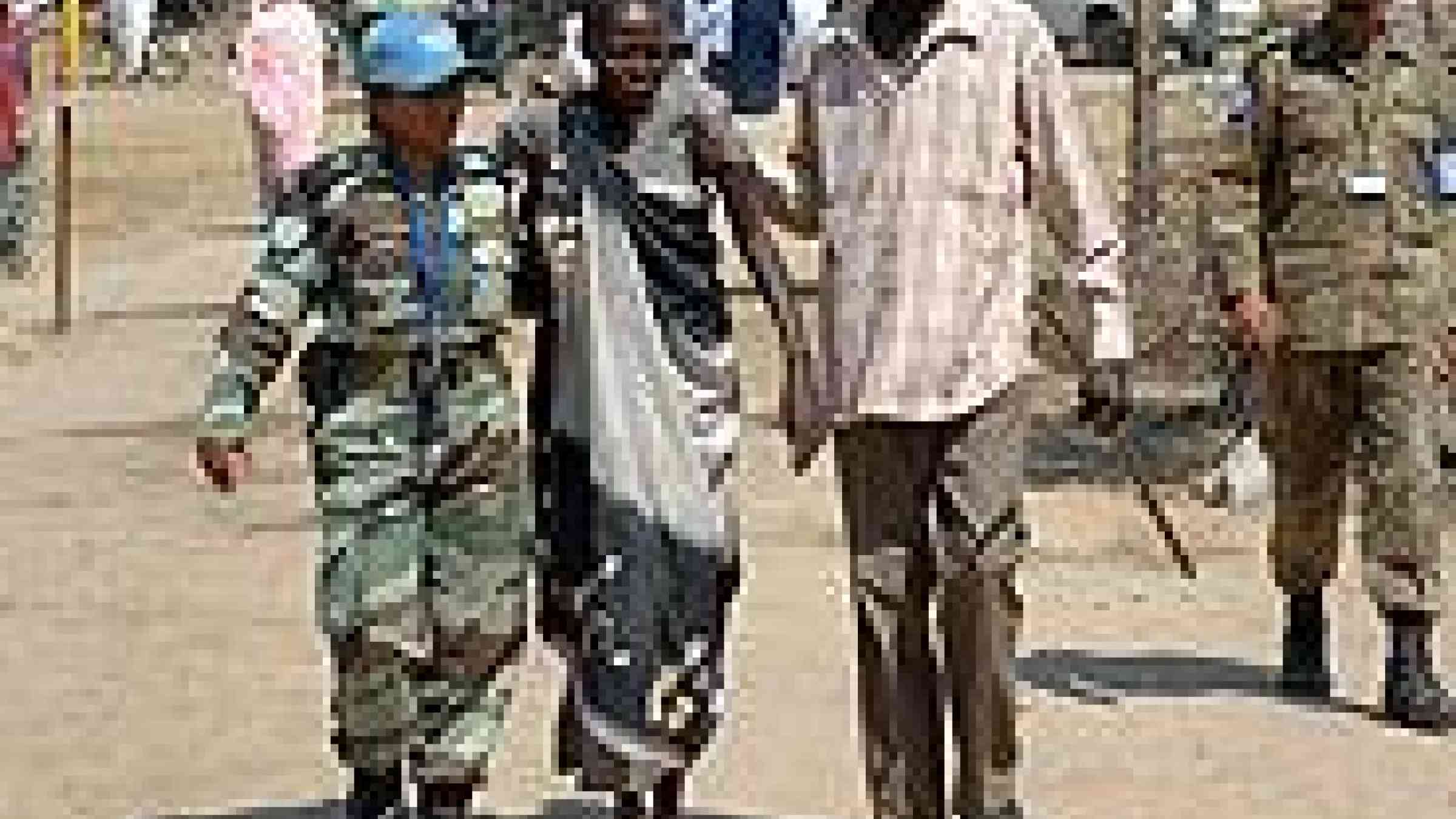Pakistan: UN more necessary than ever to tackle challenges - Ban Ki-moon

At a time of global transition, Secretary-General Ban Ki-moon says that the need for the U.N. has never been greater in tackling multiple issues, from sustainable development to ensuring peace to mitigating mega-disasters. "Periods of global transition present huge challenges but also tremendous opportunities for advancing humanity’s progress. Together, no challenge is too large. Together, nothing is impossible," he said in his annual report on the work of the organization released on Friday. The report was issued ahead of the 66th session of the UN General Assembly which opens on September 13.
"Future generations are likely to describe this period as a pivotal juncture in world history when the status quo was irrevocably weakened and the contours of a new world began to emerge," he wrote, citing the widening and deepening impact of global food, fuel and economic shocks on populations around the world and revolution and the rebirth of grass-roots-led democratic movements in North Africa and the Middle East.
He also highlighted the shifts in economic power as parts of Africa and Asia have emerged as new engines of global growth, and the rising incidence of ‘mega-disasters,’ such as the devastating 2010 earthquakes in Haiti, this year’s quake, tsunami and nuclear crisis in Japan and the massive flooding last year in Pakistan, with their huge costs in terms of lives, livelihoods and development.
"And we have seen the increasing salience of a set of global challenges that threaten the lives of people around the world and the sustainability of the planet," he said.
The UN chief called for achieving sustainable development imperative, not only by redoubling efforts to meet the UN Millennium Development Goals (MDGs) to slash a host of social ills, such as poverty and hunger, infant and maternal mortality, disease, and lack of access to health care and education, all by the target date of 2015, but also to forge a vision and framework for post-2015 development.
In the area of peace and security, he notes that the past five years have begun to witness the positive impact of strengthened UN prevention capacity when it is harnessed by Member States to help them defuse internal and cross-border tensions.
"We must continue to deepen and expand the preventive services that we are able to provide Member States," he wrote, citing the increasing complexity of peacekeeping operations that have stretched scarce resources to meet broad mandates.
"We are thinking creatively about how we can increase our agility and better leverage potential partnerships to ensure that we have the capacities necessary to meet needs on the ground," he added.
"Our next challenge is to implement additional necessary changes to ensure that we are able to continue to provide peace and security to the people we serve."
While noting steps already taken to tackle mega-disasters, he stressed the need to reshape response strategies and place a much higher premium on disaster risk reduction.
To bolster its capacities, the UN has already started forging new types of partnerships with the business community and civil society and is trying out new technologies to coordinate responders and link them to victims.
"These efforts will need to be accelerated over the next five years if we are to meet the humanitarian challenges that are likely to be coming our way," he warned.
Noting that the UN has supported calls for democracy in the Middle East and North Africa and urged the international community to protect civilians from ‘egregious violations’ of their rights in Libya, he stressed the "important positive impact that this advocacy work can have in supporting the people on the front lines fighting for human rights, the rule of law and democracy, as well as the responsibility to protect".
"As the next five years will be crucial in determining the path that many transitions will take, it is essential that we rapidly upgrade our abilities to support countries engaged in building democratic structures and processes," he added.
"The global challenges of the past decades - climate change, weapons proliferation, disease and terrorism ‘will not disappear,’ he said.
"We will need to continue to strengthen and deepen the international collaboration that we have already forged. We must also, however, be ready for new challenges that we will have to face together, not least those posed by demographic patterns."